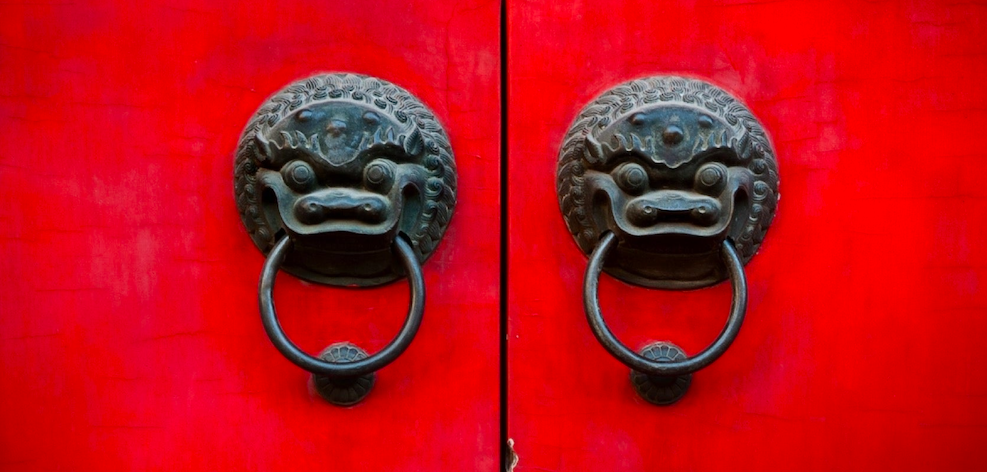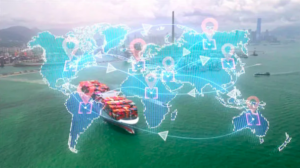If the stock market is the mood of the world at any given moment, as one job applicant in the Netflix show Billions insightfully claimed, then news is its pulse. And in 2022, China’s pulse has raced from reassuringly vigorous to sickly arrhythmic within a few brief months. Frantic Covid-19 testing programmes in January coincided with preparations for the Beijing Winter Olympic Games. Contest took place in an isolated but orderly manner in February, two weeks before the 50th anniversary of US President Richard Nixon’s 1972 visit, a revered milestone of China’s reengagement with the world after its political winter under Chairman Mao. In another month, however, news started suggesting that all is not well with China’s global role, and soon gave reason to worry that elements of the nation’s pre-Nixon history might find an unwelcome reflection in its future.
The spring of 2022 refroze various aspects of China’s interaction with the world that Nixon’s visit had inaugurated, and the 2022 Winter Olympics defiantly symbolised despite an ongoing pandemic. At the time of writing, the nation’s most populous city and undisputed economic heart is under all-encompassing lockdown paralysing various industries from investment to container shipping and pharmaceuticals. The rest of the country nervously check their own region’s pandemic pulse in fear of a similar treatment. Foreign governments, investors, multinationals, entrepreneurs, merchants, freight-forwarders and people with diverse stakes in China’s health hold their breaths and weigh bad and worse scenarios, unable to tell what will happen next. The future is unknown, but it is safe to say that even if China decided to reopen soon, business with it would never be the same.
To understand why, gaze into the future with glimpses into the past. China never was the lost continent of popular Western imagination, inspired by tales of brave explorers like Italian merchant Marco Polo, British ambassador George Macartney or American presidential advisor Henry Kissinger. But it did spend its long history periodically opening and closing towards different directions, and at times it withdrew to attend to its narrowly defined domestic interests almost completely. The 1949 creation of the People’s Republic on the ruins of a crumbled empire and failed republic, then souring relations with its main ally the Soviet Union brought such isolation. With its foreign trade and investment figures, as well as diplomatic and civil interaction close to zero between the mid-1950s and late 1980s, China virtually vanished from relevant world maps. When it reappeared, its return strategy, though nauseatingly vast and complex, was based on three simple ideas.
First, a global vision. After Mao’s death, Party patriarch Deng Xiaoping communicated his eagerness to go global in many ways, from conceptual to visual, from the shrewdly strategic to the cartoonishly obvious. He admitted to the nation that China needed foreign cash, and then embarked to follow it. He visited worldwide leaders, including old foes like Japan and the USA. He ditched his revolutionary resentment and visited capitalist factories, labs and banks. He wore suits, ties and paraded in cowboy hats. Within a decade from coming to power, the world knew, though still failed to pronounce, his name.
Second, economic integration. Deng was no dictator in sole charge of change. In fact, his secret weapon was a population determined to build a better life, not for the Motherland but for themselves. Deng had used his earlier experience as worker at Peugeot and Schneider factories in France as examples of exploitation. Towards the end of the millennium, he presented the same to the nation as an opportunity. Each visit to a Chinese plant, sight, museum and family, each meeting, shared installation and trade fair, every meal and cup of baijiu became an interface between the world and a re-emerging China, with the party’s bright red approval stamp.
Three, interaction. The ultimate goal of all this was to lift China from its self-inflicted isolation. To showcase the economic, social and cultural value it could contribute to the world, the Party that had confined the nation now encouraged people to work and send their kids to study abroad, and learn from foreigners in China. Foreigners remained banned from becoming local citizens, judges, doctors, politicians, auditors, professors or priests—they still are. But instead, there was ‘guanxi’, a carefully choreographed, transactional exchange of ideas and resources between influential locals and necessary outsiders: people-to-people relations with Chinese characteristics.
Demarcations remained all along, and barriers thickened with each newly opening gate. China’s WTO accession coincided with the ‘Three Represents’, an invitation to the most influential entrepreneurs into the Communist Party, thus consolidating their interests with the state. The Great Firewall emerged in preparation for the 2008 Olympic Games, lest China’s ‘Coming-Out Party’ exposed locals to funny foreign ideas. Regulations not only kept foreigners away from key social roles but made the overwhelming majority of visas dependent on employment and created a separate set of corporate laws for local and ‘foreign-invested’ companies. The system made sure that China engaged the world at its own, highly conditional terms. Camaraderie between Chinese and foreigners, from shared liquor-shots to marriages, only made sense in light of economic interaction, which in turn served the vision of China’s role in the world.
Understanding today’s China is only possible by following the workings of the complex ecosystem that Beijing created over a quarter century. The nation’s best talent slurps instant noodles at home in isolation, much of its proud infrastructure lying fallow. World leaders wonder out loud in shock whether China is now pulling apart the world order it inherited, used cleverly, didn’t like and started remodelling, and what it wants instead. The answer probably lies in the fact that any complex system created for one purpose can be recalibrated for another when the objective changes. Weapons factories can make soup cans or cigarettes, pharmaceutical plants can make rat poison, spell-check software and printing presses are easy to reset between news, prayers, science textbooks, porn, travelogues and back. It seems that what the world witnesses right now is the same ruthlessly efficient Chinese state machinery reprogrammed for another purpose.
Assume that Beijing announces to fully reopen the country starting June 1, 2022, along with measures to make that possible: healthcare measures in preparation for rising COVID cases and so forth. Would that be the long-expected ‘return to normal’ for China-facing investors, traders, managers, reporters, artists, students and tourists? That is highly unlikely, because China has changed, and so has the world it would find across reopened doors. Customers form new habits when a shopping mall closes for renovation—now magnify that ten-thousandfold, and you have an idea. Neither is China willing to restart business under the same old brand: its priorities have significantly shifted since the closure. To see how, we can simply revisit the above three steps of reform and opening, this time in reverse, as it usually happens with reversals.
Interaction: China never reached high levels of people-to-people exchange with the world. The moderate standards it reached were accomplished impressively fast, but the trend soon reversed. Indices in ‘trade openness’, ‘global exposure’ and other relevant measurements show a-shaped pattern culminating around 2010, then declining. Recently the trend accelerated with steep drops in Chinese people visiting, studying and working abroad, as well as in foreign-language education and access to foreign media and entertainment in China. Its tech sector is perhaps the best illustration of the reversal, working as hard to separate today as it did to connect for decades, in the name of China’s ‘cyber sovereignty’ principle.
Decoupling: The economic power and social attractiveness of a Western multinational’s ID card, branded ribbon around one’s neck and all, has gained and then lost much value in China in 25 years. Gone are the days when local firms chose faux English names to pose as multinationals. Today, multinational firms speed-register local entities and transfer their business there in order to protect their PRC interests. That may benefit China’s short-term inward investment figures, but also splits China branches from global operations, worsening operational gaps, transparency concerns and culture clashes between headquarters and local branches. I increasingly deliver intercultural leadership workshops to Mainland Chinese management teams who claim not to have contacts with foreigners at all.
Priorities: A saddening story seems to repeat on the world stage today, where observers dismiss scenarios like Brexit, Donald Trump’s presidential victory or drastic fiscal policies in India and Japan because they would make no economic sense. But like individuals, nations can consider wealth as means to other ends, and disregard economic interests in pursuit of different priorities. China’s current cooling towards hard-earned global responsibilities and grounding tens of millions in the name of zero-COVID policies might well be a sign of changing priorities rather than miscalculations. In Beijing’s view, China might simply have much more urgent issues at hand than leadership in international disputes and further economic integration. Priorities include grand visions of a COVID-free population, ‘common prosperity’ and the long-term stability of the Party’s rule.
Assuming an imaginary June 1 opening, expats, academics, executives and tourists would land in a China as different from the pre-pandemic country as pre- and post-Olympics visits were. Someone who left in 2005 returned in 2010 to more economic vibrancy but worse global connectivity. Post-pandemic visitors, probably fewer than ever since Deng’s time, will find significantly less enthusiasm for anything foreign, but plenty of opportunity to participate in economic activities across higher barriers. Multinationals will keep creating pseudo-local firms to comply with rougher regulations. China’s continued thirst for foreign investment will inspire new initiatives like its recent financial inspection agreement with the US Securities and Exchange Commission. It is nearly certain that the number of foreigners in China will drop sharply, while investment and business will suffer less, promising great benefits for the daring few. The new situation will require a different expat profile, but then again, it will be a different place anyway.
Picture credits: Shutterstock






Be First to Comment